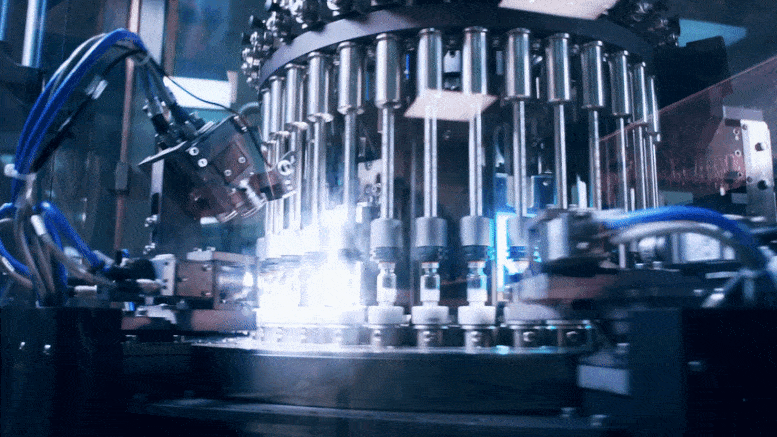
In response to the ongoing challenge of COVID-19 and the need for quicker drug development, a team of global researchers has developed a tool, PHENSIM, which can simulate tissue-specific infection of host cells of SARS-CoV-2 to identify drugs that could be repurposed to fight future pandemics. By taking into account selected cells, cell lines, and tissues and propagating the effects and alterations of biomolecules, the algorithm identifies potential candidates for drug repurposing. The tool could significantly improve disease-specific drug development by selecting the best candidates ahead of costly and laborious in vitro and in vivo experiments and ensuing clinical trials.
Algorithm calculates how to effectively “repurpose” present-day therapies for future use.
Researchers have developed an algorithmic tool, PHENSIM, which simulates tissue-specific infection of host cells of SARS-CoV-2 to identify existing drugs that could be repurposed to fight future pandemics. The tool could improve disease-specific drug development and offers the possibility of responding more quickly to public health crises.
A global team of researchers has created an algorithmic tool that can identify existing drugs in order to combat future pandemics. The work, reported in the Cell Press journal Heliyon, offers the possibility of responding more quickly to public health crises.
“There is no silver bullet to defeat the Covid pandemic as it takes us over a public-health roller-coaster of deaths and devastation,” explains Naomi Maria, an immunologist, a visiting scientist at New York University’s Courant Institute of Mathematical Sciences, and the paper’s lead author. “However, using this AI tool, coupled with in vitro data and other resources, we’ve been able to model the SARS-CoV-2 infection and identify several COVID-19 drugs currently available as potentially effective in battling the next outbreak.”
“Drug repurposing strategies provide an attractive and effective approach for quickly targeting potential new interventions,” adds Bud Mishra, a professor at NYU’s Courant and one of the paper’s senior authors. “Identifying and selecting ahead of time the best candidates, prior to costly and laborious in vitro and in vivo experiments and ensuing clinical trials, could significantly improve disease-specific drug development.”
COVID-19 has shown to be a daunting challenge over the past three years, even though vaccines and hygienic practices have, over time, lessened its severity. However, despite these tools to combat it, SARS-CoV-2—the virus that causes COVID-19—continues to spread and take lives. This is due, in part, to its ability to rapidly diversify in its target cell types, immune-response pathways, and modes of transmission. These traits make traditional approaches to vaccine and drug design less effective than in the past—and especially when the virus co-infects with other pathogens, such as RSV and influenza.
Recognizing that current methods leave us chasing the virus, the team—which also included researchers from the Feinstein Institutes for Medical Research at Northwell Health in New York, the Red Cross Blood Bank Foundation Curaçao, the Curaçao Biomedical Health and Research Institute, the Netherlands’ University Medical Center Groningen, and Catania University’s Department of Clinical and Experimental Medicine in Sicily—conceived an approach aimed at closing the gap in future pandemics: repurposing existing drugs to fight back.
To do so, they developed a systems biology tool, the PHENotype SIMulator (PHENSIM). PHENSIM simulates tissue-specific infection of host cells of SARS-CoV-2 and then performs, through a series of computer—or in silico—experiments to identify drugs that would be candidates for repurposing. The algorithm computes, taking into account selected cells, cell lines, and tissues and under an array of contexts, by propagating the effects and alterations of biomolecules—such as differentially expressed genes, proteins, and microRNAs—and then calculates antiviral effects. The team confirmed the validity of the tool by comparing its results with recently published in vitro studies, demonstrating PHENSIM’s potential power in aiding effective drug repurposing.
The researchers are part of RxCovea—a multi-disciplinary group of immunologists, biologists, chemists, data scientists, game theorists, geneticists, mathematicians, and physicians, among others, that seeks to develop innovative strategies to address COVID-19.


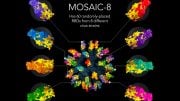
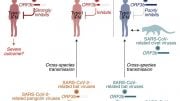
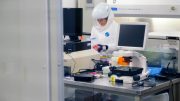
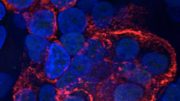



Be the first to comment on "Fighting the Next Pandemic: Algorithmic Tool Identifies Existing Drugs To Battle Future Outbreaks"